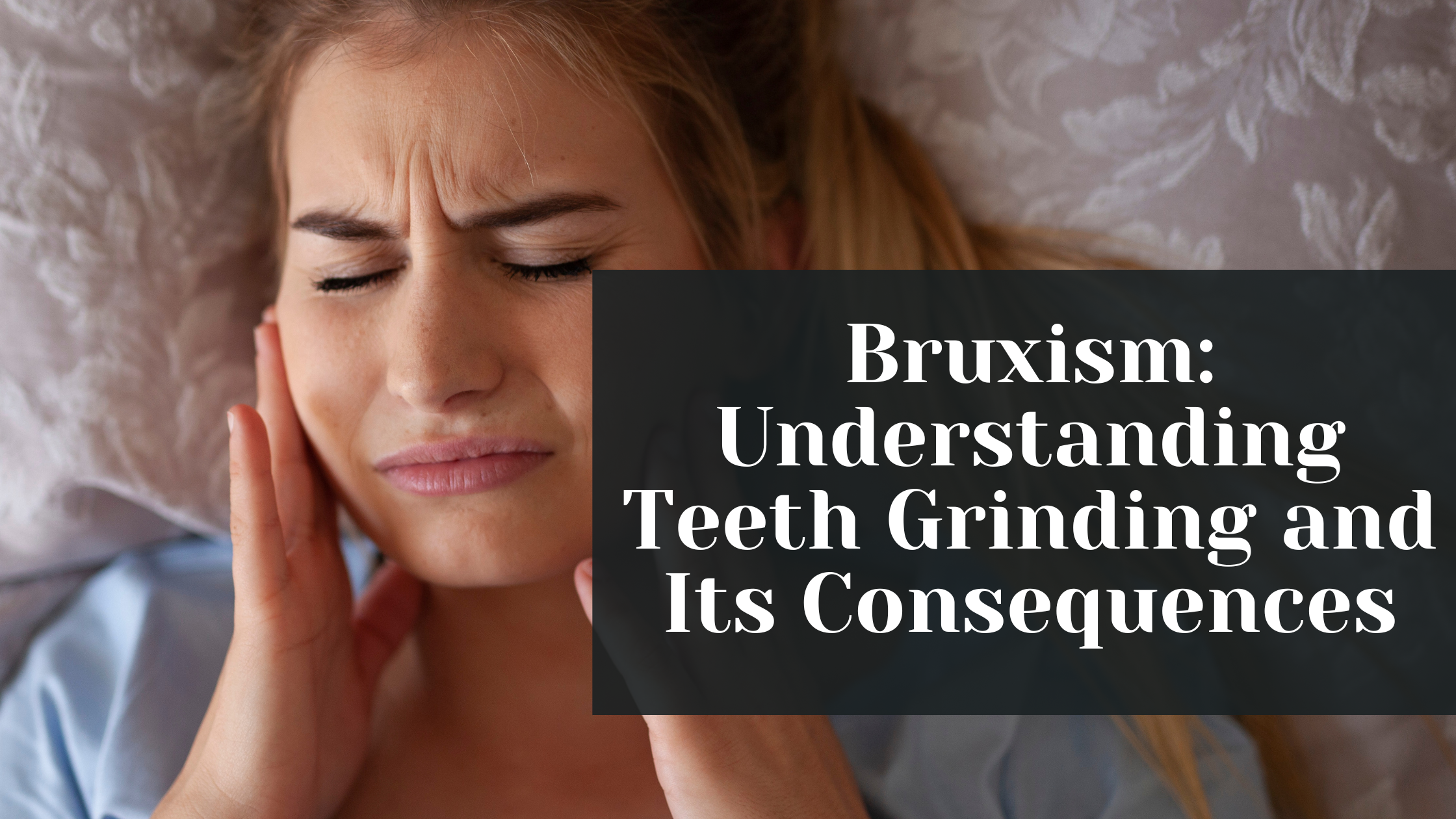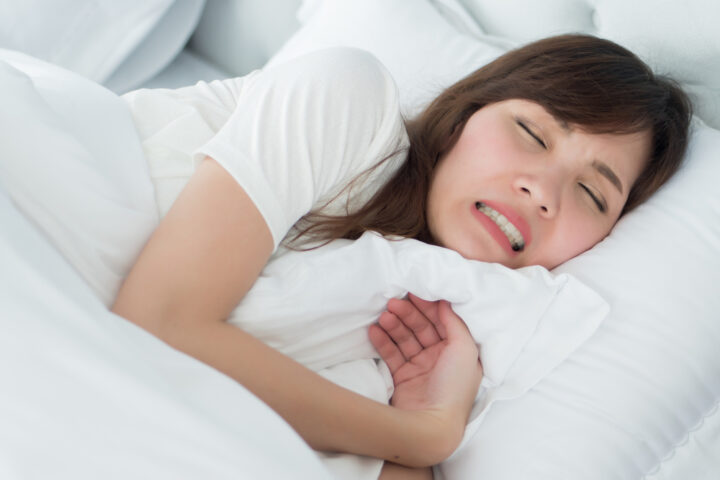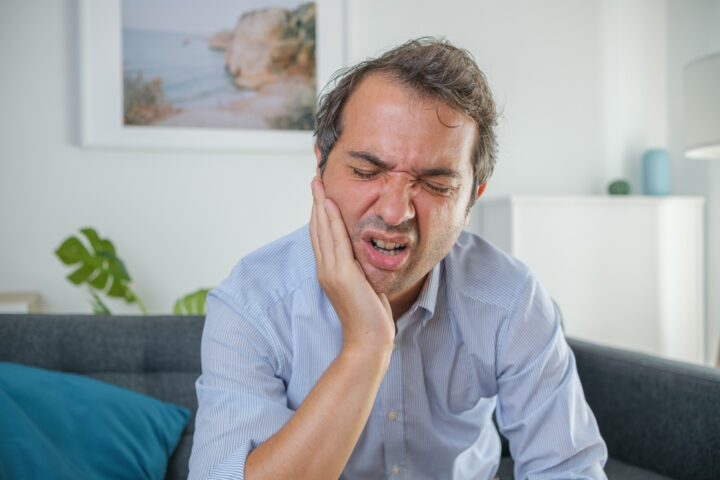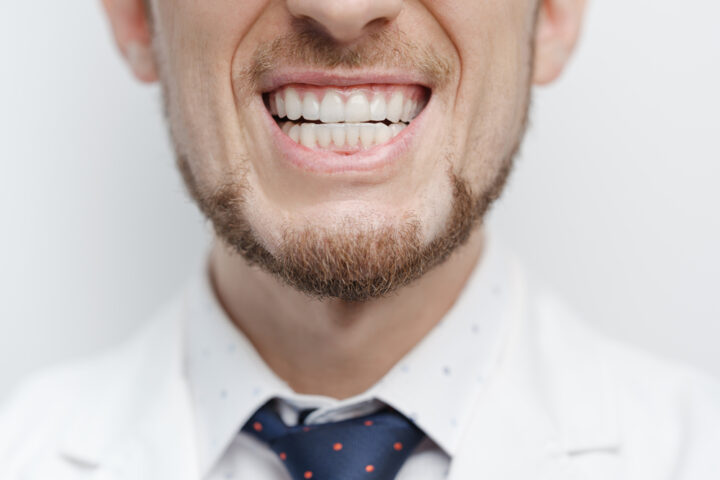Bruxism, commonly known as teeth grinding, is a dental condition affecting millions worldwide. While it may seem harmless at first, the consequences of bruxism can be significant if left untreated. If you are suffering from teeth grinding, keep reading because we are going to delve into the causes, symptoms, and potential implications of bruxism, as well as ways to manage and prevent this condition.
What is Bruxism?
Bruxism is the involuntary clenching or grinding of teeth, typically occurring during sleep and sometimes during the day. This condition can affect individuals of all ages, from children to adults, and it often goes unnoticed until its effects become more pronounced. Bruxism can be categorized into two main types:
-
Awake Bruxism: This occurs when individuals clench or grind their teeth during waking hours. It is often associated with stress, anxiety, or as a subconscious habit.
-
Sleep Bruxism: As the name suggests, sleep bruxism occurs during sleep and is usually more forceful than awake bruxism. People who grind their teeth while asleep may not be aware of their condition until they experience its consequences.
Causes of Bruxism
The exact causes of bruxism can vary from person to person, but several common factors are associated with this condition:
-
Stress and Anxiety: One of the most common triggers for bruxism is stress. Individuals often grind their teeth as a way to release tension.
-
Abnormal Bite: A misaligned bite or an uneven distribution of teeth can lead to bruxism. The grinding may be an attempt to find a more comfortable bite position.
-
Sleep Disorders: Certain sleep disorders, such as sleep apnea, can contribute to sleep bruxism.
-
Medications and Substances: Some medications, like antidepressants and stimulants, can increase the likelihood of teeth grinding. Alcohol and recreational drugs may also exacerbate the condition.
-
Age: Bruxism is more prevalent in children but can persist into adulthood. It tends to decrease with age, but it can still affect older individuals.
Symptoms of Bruxism
Identifying bruxism can be challenging, as it often occurs during sleep. However, there are several signs and symptoms that may indicate teeth grinding:
-
Headaches: Frequent and unexplained headaches, especially in the morning, can be a sign of bruxism.
-
Jaw Pain: Bruxism often leads to jaw pain, as the excessive pressure placed on the jaw joint can result in discomfort or even temporomandibular joint disorder (TMD).
-
Tooth Sensitivity: Grinding can wear down tooth enamel, leading to increased tooth sensitivity to hot or cold temperatures.
-
Chipped or Worn Teeth: The constant grinding can cause teeth to become chipped, fractured, or noticeably worn down.
-
Earache: Some individuals with bruxism may experience earaches due to the close proximity of the ear and jaw.
-
Facial Pain: Facial pain or soreness, particularly around the jaw and cheek areas, can be a consequence of teeth grinding.
-
Sleep Disturbances: Sleep partners may notice the sounds of grinding during the night, which can lead to disrupted sleep patterns.
Consequences of Bruxism
Ignoring bruxism can have serious consequences for your dental health and overall well-being. Some of the potential complications include:
-
Dental Damage: Prolonged teeth grinding can result in the erosion of tooth enamel, which can lead to cavities and tooth sensitivity. Additionally, the constant pressure on the teeth can cause them to become chipped, cracked, or even loose.
-
Temporomandibular Joint Disorder (TMD): Bruxism can strain the jaw joint, leading to TMD. TMD can cause pain, difficulty in opening and closing the mouth, and clicking or popping sounds in the jaw.
-
Gum Recession: Excessive grinding can also lead to gum recession, exposing the roots of the teeth and making them more vulnerable to decay.
-
Sleep Disturbances: Teeth grinding can disrupt your own sleep as well as that of your sleep partner. The loud grinding noises can lead to interrupted sleep patterns and fatigue.
-
Headaches and Facial Pain: Chronic bruxism can result in frequent headaches and facial pain, affecting your quality of life.
-
Stress and Anxiety: The link between bruxism and stress or anxiety is well-established. Managing stress and anxiety becomes crucial in preventing and treating bruxism.
Diagnosis and Treatment
If you suspect you have bruxism or are experiencing any of the associated symptoms, it’s essential to consult a dentist for a proper diagnosis and treatment plan. Diagnosis typically involves a comprehensive examination of your teeth and an assessment of your dental history.
Treatment options may include:
-
Mouthguards or Splints: Dentists often recommend custom-made mouthguards or splints to protect your teeth from the grinding forces. These devices can help reduce damage and alleviate symptoms.
-
Stress Management: If stress or anxiety is a contributing factor, addressing these underlying issues through therapy or relaxation techniques may be recommended.
-
Orthodontic Treatment: In cases where a misaligned bite contributes to bruxism, orthodontic treatment may be necessary to correct the alignment of the teeth.
-
Lifestyle Changes: Lifestyle modifications, such as reducing caffeine and alcohol intake or avoiding stimulating substances before bedtime, may help alleviate bruxism.
Preventing Bruxism
While not all cases of bruxism can be prevented, there are steps you can take to reduce your risk or mitigate the severity of the condition:
-
Stress Management: Practice stress-reduction techniques such as yoga, meditation, or deep breathing exercises to help relax your body and mind.
-
Limit Caffeine and Alcohol: Reduce your consumption of caffeine and alcohol, especially in the hours leading up to bedtime.
-
Stay Hydrated: Ensure you’re adequately hydrated throughout the day, as dehydration can sometimes exacerbate bruxism.
-
Maintain Good Oral Hygiene: Brush and floss your teeth regularly to maintain good oral health. Healthy teeth are better equipped to withstand the forces of grinding.
-
Wear a Mouthguard: If you’re prone to bruxism or have been diagnosed with it, wearing a custom-made mouthguard at night can protect your teeth from damage.
Suffering From Constant Teeth Grinding? Contact Sheehan Dental
If you feel as though you are suffering from bruxism, contact us as soon as possible. While it may not seem like a huge deal at first, constant teeth grinding during the night or day can not only seriously affect your teeth and oral health, but it can also impact your entire body. Schedule an appointment today with Sheehan Dental and get your teeth grinding under control.




